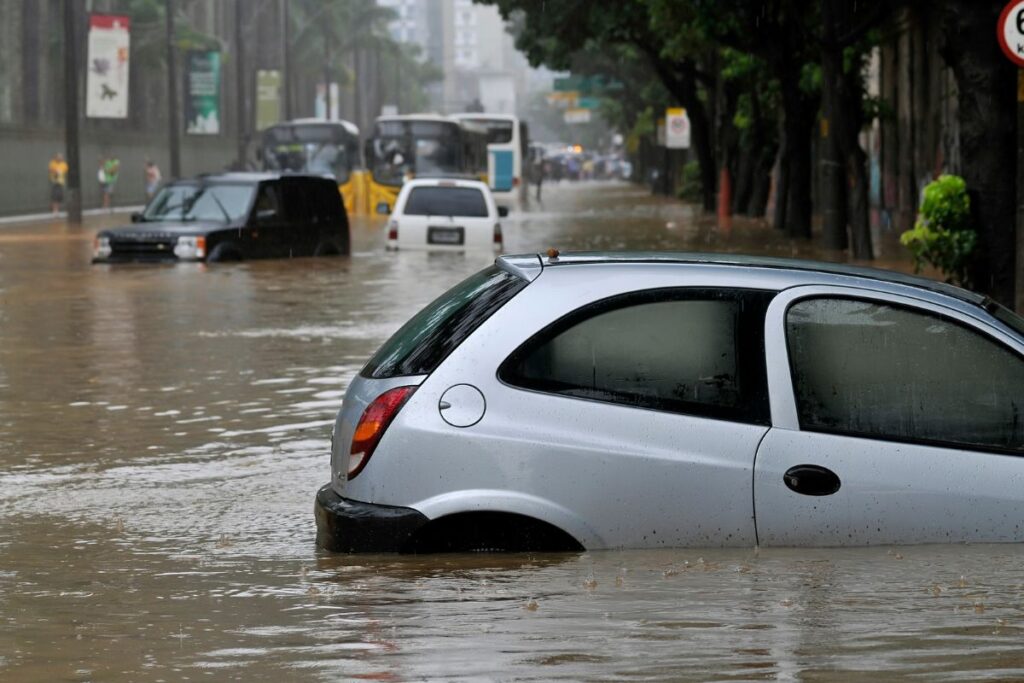Recently, Dubai experienced an unprecedented level of rainfall, causing infrastructural difficulties and flooding in parts of the city. This has led some to question whether cloud seeding, a technique used to stimulate precipitation, is responsible for this extreme event.
Claims have gone viral that the deluge was brought on by cloud seeding, a technique that aims to increase precipitation, particularly utilized in the United Arab Emirates (UAE). However, climate scientists such as Daniel Swain from the University of California, Los Angeles, caution against drawing hasty connections, stating that there is currently a “disconnect in the online discourse between the kind of human activities that likely did affect it versus those which have actually been the focus of the online conversation thus far.”
Understanding Cloud Seeding
According to the Desert Research Institute, scientists use tiny particles called nuclei that are released into the atmosphere and attach to clouds in order to stimulate precipitation. This process results in newly formed snowflakes or raindrops growing quickly before falling back to Earth’s surface. While cloud seeding can increase snowpack levels in colder regions, it generates increased rainfall in warmer areas like Dubai.
Climate Change and Intensifying Storms
Many scientists believe that, rather than linking extreme events like the recent rainfall in Dubai to cloud seeding, these occurrences should be examined within the larger context of climate change and its effects on weather patterns. As temperatures rise, evaporation rates also increase, resulting in more frequent and intense storms. These changing conditions can strain communities without proper adaptation measures in place.
Experts Weigh In
Andrew Kruczkiewicz from Columbia Climate School doubts that there is any evidence showing cloud seeding caused the deluge event over Dubai, as the storm was well-forecasted days in advance. Similarly, meteorologist Ryan Maue has stated that it’s unlikely cloud seeding played a role in this extreme rainfall event.
The UAE’s Proactive Weather Management Efforts
Recognizing the potential risks associated with extreme weather events, the UAE’s National Center of Meteorology (NCM) issued weather warnings before the recent storm, urging people to comply with local instructions from authorities and stay at home unless necessary. This proactive approach seeks to mitigate potential harm caused by heavy rainfall or other climatic disturbances.
The NCM has also launched a research program focused on rain enhancement science, which aims to advance technology for aiding water-scarce regions around the world suffering from precipitation deficits.
Dubai’s Response to the Deluge
The historic levels of rainfall experienced in Dubai exposed a lack of preparedness for such an event, with drainage systems overwhelmed and operations temporarily halted at Dubai International Airport. Nonetheless, the nation was able to weather the storm, albeit not without disruptions to daily life and infrastructure.
The Future of Water Scarcity Issues
As climate change continues to exacerbate weather conditions across the globe, many regions beyond the Middle East are facing problems related to water scarcity. While cloud seeding strategies have demonstrated success in increasing snowpack levels according to various studies cited by the Desert Research Institute, they still require careful examination and understanding of their potential ramifications.
Demystifying Cloud Seeding and Extreme Rainfall Events
Gaining a comprehensive understanding of the relationship between cloud seeding techniques and extreme rainfall events – like the one recently witnessed in Dubai – is crucial to developing sustainable solutions for combating water scarcity and adapting to climate change-induced weather patterns. The following points summarize the key takeaways from this article:
- There is no solid evidence to prove that cloud seeding techniques were responsible for Dubai’s recent deluge.
- Experts suggest that increased evaporation rates due to climate change may have contributed to the intensity of the storm.
- The UAE has proactively addressed weather management concerns by issuing warnings and investing in research programs focused on rain enhancement science.

